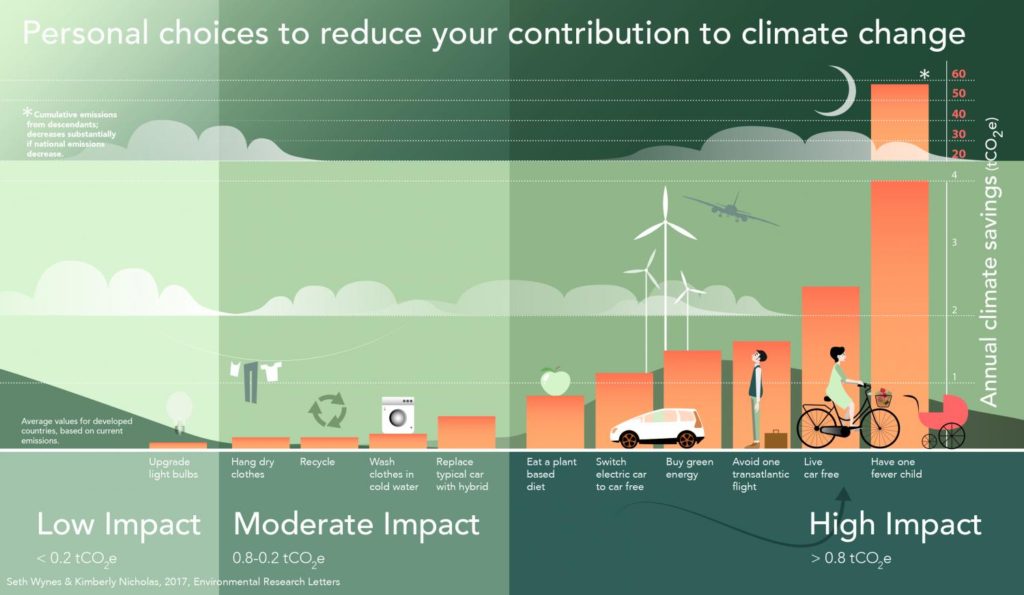
Smaller families most effective action on global warming
Last week, researchers from Lund University and the University of British Columbia published a widely reported article highlighting the top ‘high-impact’ actions individuals can take to reduce their carbon emissions and fight climate change. They concluded that having fewer children could have by far the greatest impact over the long term. The findings were in line with another recent report which identified steps to manage population growth as among the most effective measures available to reduce global emissions.

Meeting climate targets
Each year, countries such as the United States and Australia produce 16 tons of CO2 per person. Yet in order to avoid severe global warming, it is estimated that carbon emissions must fall to two tons per person by 2050. With this in mind, researchers Seth Wynes and Kimberly Nicholas set out to find which individual lifestyle choices could have the greatest potential to reduce emissions in developed countries, thereby helping us meet our climate targets.
Researchers reviewed multiple actions which can help reduce individual emissions. They identified four high-impact actions with the greatest potential to reduce our individual emissions.

- Having one fewer child
- Living car-free
- Avoiding airplane travel
- Eating a plant-based diet Data from Wynes, Seth, and Kimberly A Nicholas. 2017. “The Climate Mitigation Gap: Education and Government Recommendations Miss the Most Effective Individual Actions.” Environmental Research Letters 12(7). DOI: 10.1088/1748-9326/aa7541. Image credit: Catrin Jakobsson
Future carbon emissions per person are impossible to predict, but the authors calculated illustrative figures to show the effect over the long term, based on today’s emissions per person in the developed world. They worked on the principle that each parent holds 50% responsibility for their child’s emissions, 25% for their grandchildren, and so forth. On this basis, calculating the total emissions for which each person would be responsible in future generations, the authors estimated that over the long term, having one fewer child could be more than 20 times more effective than any other action.
Because they apply over several generations, these savings would not be immediate and other actions to reduce carbon emissions in the short term remain essential.
Personal choices
In a statement made to The Guardian, Nicholas commented: “We recognise these are deeply personal choices. But we can’t ignore the climate effect our lifestyle actually has.” She also acknowledged that while massive changes will need to be undertaken in order to seriously grapple with climate change, it is important to show that individuals have an opportunity to be part of the solution.
Adopting ‘high impact’ actions
Although having one fewer child outweighs any other action to reduce an individual’s carbon emissions over the long term, it is rarely mentioned as part of a strategy for combatting climate change.
In a survey of government resources across Canada, Australia, the United States, and the European Union, recommendations were found to focus significantly on actions with low to moderate-impact, such as upgrading light bulbs and recycling.
In response to this, Nicholas said the low-impact actions were still worth doing: “All of those are good things to do. But they are more of a beginning than an end. They are certainly not sufficient to tackle the scale of the climate challenge that we face.”
The key message here is that individuals can make a difference when it comes to reducing emissions and combatting climate change. It is important, however, for people to know which actions they can take in order to have the greatest impact overall.
To stay up-to-date with the latest facts and figures related to population and our human impact on the world, make sure to follow our Facebook and Twitter pages.



